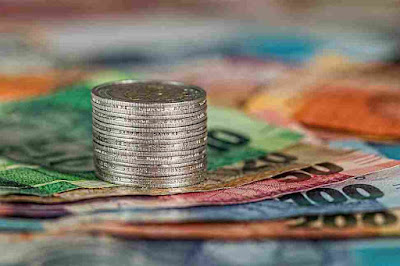Is my money in the bank safe?

Picture of some currencies

Everyone has their cherished money in the bank. Now let me ask you a creepy question. Is my money in the bank safe?
A bank is a financial institution that earns money by lending money deposited by depositors. So, banks lend most of their deposits to people or companies in need of money. With interest earned on the loan, the bank pays deposit interest to depositors.
There is always a risk of not getting your money back with a loan, as there is no guarantee that all borrowers who borrow money will pay it back. Banks are also at risk if there are a lot of places where they can't pay off their loans. The worst-case scenario could be that you don't have enough money in your safe to return your deposits and interest.
Of course, these days, such a terrible situation seldom happens because banks are strict in managing their loans. However, it is a big deal if people become anxious because of the possibility of one-on-one occurrences and hesitate to deposit in a bank.
Also Read:
If money does not flow smoothly through the bank to where it is needed, economic activity will not be carried out properly. It is the same principle as if the blood does not circulate throughout the body, the body cannot function properly.
To prevent this from happening, the government created a 'depositor protection system'. If a bank goes bankrupt and cannot return the depositors' money, the government-created Deposit Insurance Corporation returns the deposits instead. It is a promise made by the government and there is no way to break it.
Thanks to a safeguard called the Depositor Protection System, we can clearly say that the deposits we put in the bank are safe. You can leave your valuable money in the bank with confidence.
No matter how good the system is, it is of no use if the depositor is not aware of it and does not use it. Saving money also requires economic knowledge.
First, the maximum amount of deposit protected per person is 50 million won including principal and interest. For example, if a bank with a deposit of 70 million won goes bankrupt, only 50 million won is returned and the excess 20 million won is not refunded.
Second, each bank is guaranteed up to 50 million won. For example, I divided the money into 40 million won and 30 million won and deposited it in A and B, but what would happen if both banks went bankrupt? All can be returned. This is because of the distributed deposits of money. This means that if you sell a little product and deposit it in several banks no more than 50 million won, you can be guaranteed even a few hundred million won.
Third, the method of depositing money in several branches of A bank is useless. Even if they have different branches, they are considered to be the same bank, so deposits are considered to be in one bank and can only be guaranteed up to 50 million won in total.
Finally, even if you leave the money you invest in stocks or funds in a bank, you are not guaranteed at all. This means that money invested for higher returns is not subject to depositor protection. Investors are responsible for all losses.
0 Comments